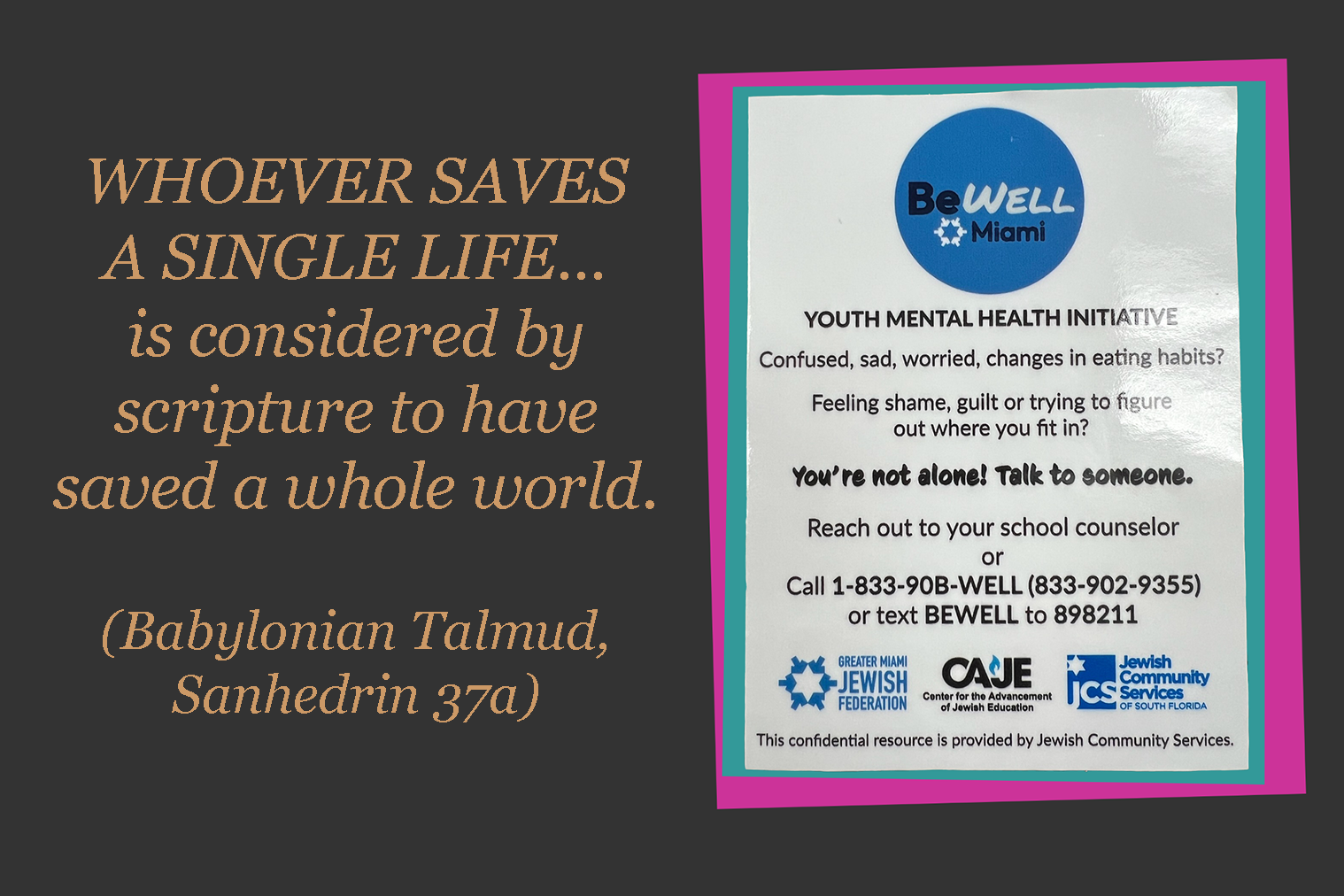CAJE Creates Language for First-in-Nation Placard to Address Our Youth Mental Health Crisis
Posted on 12/02/2022 @ 05:00 AM

On Monday this week, the boardroom at the Greater Miami Jewish Federation was filled with representatives from a broad range of community organizations and Jewish denominations (Orthodox to Just Jewish) for the BeWell - Youth Mental Health Convening gathering chaired by community leader Elise Scheck Bonwitt and Federation’s Chief Planning Officer Michelle Labgold.
Participants learned the results of our local Youth Mental Health survey and explored the many ways our community already supports our youth’s mental health and the avenues we still need to work on to respond to the youth mental health crisis, exacerbated by Covid-19 and other events.
At CAJE, we have been working on this crisis with our community’s day schools for several years under the leadership of CAJE’s Associate Director of School Markets, Audrey Maman Bensoussan.
During the pandemic, Audrey convened a new network of 17 school counselors / psychologists from Miami funded schools called the Youth Mental Health Network.
One of the key functions of a CAJE or “central agency” is to convene and network education leaders and implement programs and initiatives that only a “central agency” can do on behalf of the entire school community.
The goal of this new network was to give the school counselors / psychologists the opportunity to share situations safely and confidentially that were happening in their respective schools and get advice and suggestions from their peers.
With four children of her own, Audrey began to notice more and more anxiety, stress, and lack of social interaction among them and their peers.
She turned to the network and its chair, Raina Chocron, a counselor at Scheck Hillel Community School, to discuss what approaches might help.
Together they determined that some children may not feel comfortable talking with people they know at their schools and see every day, especially if they are wrestling with suicidal ideation, extreme anxiety or LGBTQ identity.
In addition, the counselors, as well as Audrey, were hearing from teens who were telling them that friends were reaching out to them for help, but they didn’t know what to do to support them.
It was at that point that the network began working on creating language for a placard that could be placed in a private area of middle and high schools, such as inside a bathroom stall, similar to what JCS had done with its Shalom Bayit initiative to support victims of domestic abuse.
For months, the counselors and Audrey wrestled with finding the right language and gaining consensus from all the heads of school.
In the coming calendar year, every (funded) Jewish day school in Miami-Dade County – even our hareidi schools— have agreed to put up these placards in private areas within their middle and high schools (such as bathroom stalls) with a dedicated phone number that teens can call or text for assistance if they are feeling overwhelmed, anxious or very sad.
This phone number connects to a 24-hour Jewish Community Services (JCS) hotline with counselors specially trained to address youth mental health issues.
CAJE is so grateful to our many community partners involved in this process— first and foremost, the Greater Miami Jewish Federation-- as well as JCS, and JAFCO, in addition to our wonderful day school leadership.
The final version of the placard pictured at the beginning of the article was revealed at the BeWell gathering and will be sent to all of our Jewish community institutions, including JCC’s and synagogues, so they can display them in private spaces, so be on the lookout for them.
Together with our community partners, CAJE looks forward to training our educators, our teens, and our parents in how to best support our youth so they can find safety and calm in an anxious world and one day, if needed, save the life of a child.
To learn more about the Youth Mental Health Network and the Placard initiative, contact audreymaman@caje-miami.org and for the larger community BeWell effort, contact Michelle Labgold, mlabgold@gmjf.org.




